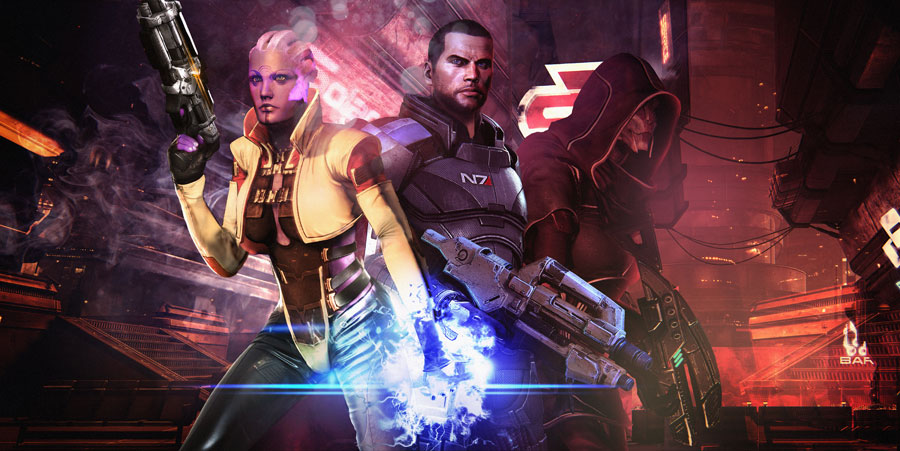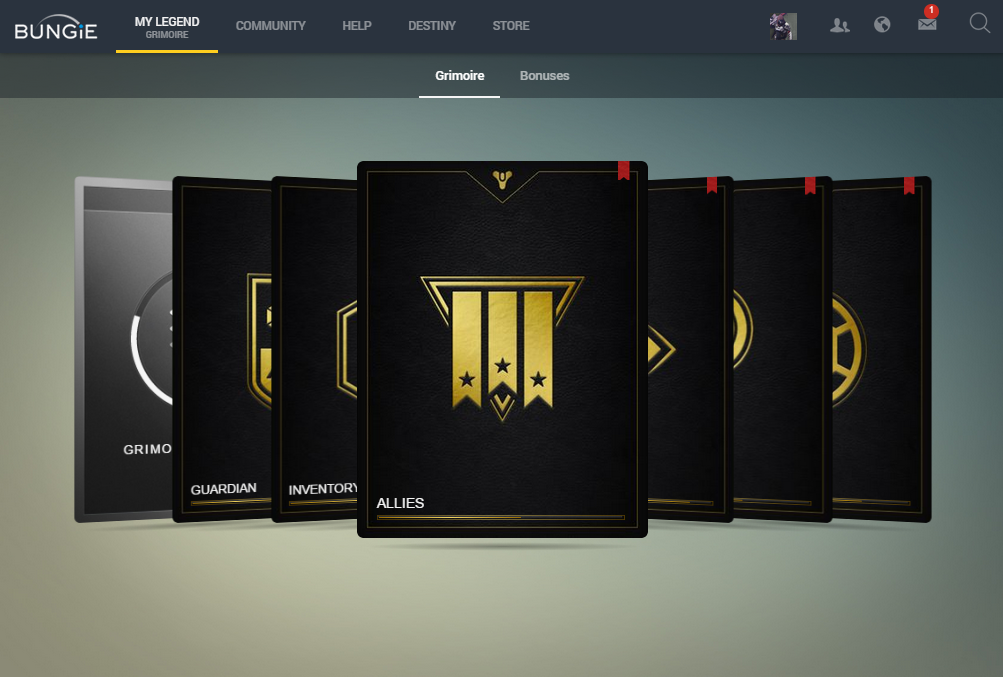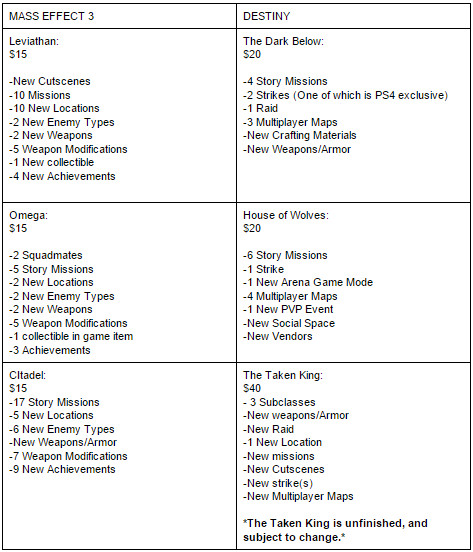Due to recent network issues, I was unable to play my current favorite interplanetary sci fi shooter, Destiny. As I sat at my desk twiddling my thumbs, I remembered my other favorite intergalactic adventure, Mass Effect 3. And just like that my fight against the reapers was back on track.
As a disclaimer, I must state that the Mass Effect Series is my favorite gaming series of all time. When taking into consideration, narrative, gameplay mechanics, soundtrack, and design, I honestly think it is the greatest series ever created. But after solely playing Destiny in my spare time, I felt I had shut myself away from the vast world of games, and after peeking my head out, I realized a few key things.
One of the chief complaints about Destiny is it’s incredibly scant story. The first argument you will hear is, “The story is there, you are just too lazy to read the Grimoire on Bungie.net”. I always found this comparable to eating at a restaurant that only served tasteless food, but then handed you an index card labeling all the ingredients that should have been in it. A narrative should be present within the game itself, one should not have to hunt for the story elsewhere. Having said that however, Destiny does have great lore and backstory, which makes it all the more frustrating that I feel so disconnected from it while playing.
The abundance of missed opportunities is astounding in the Destiny Universe. For example, as I walked through the Citadel, which is the games most similar space to Destiny’s Tower or Reef, I could hear NPC’s arguing. These two characters were debating politics, and issues pertinent to the main story. I was able to support one of them and pipe up, defending their point of view. Imagine strolling through the tower and arguing the philosophies of one of the cities factions? We are told (rather than being shown) about the factions conflicts, yet we rarely experience it firsthand. Small details like this would go over fantastically in the world of Destiny.
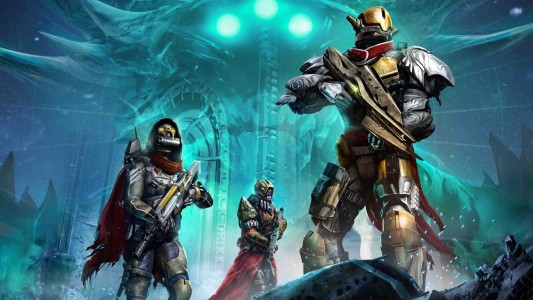 After playing through a few hours of Mass Effect 3, I realized how starved for narrative I have actually become as a gamer. I found myself being floored by the fact that each character had an actual personality. Each main character had wants, needs, fears, hopes, and moral systems of their own. In beautifully voiced cutscenes and playful banter on the field, I learned more and more about my compatriots. I found myself wanting to engage them, rather than sitting there wishing they would shut up already (Yes Eris, I am looking at you).
After playing through a few hours of Mass Effect 3, I realized how starved for narrative I have actually become as a gamer. I found myself being floored by the fact that each character had an actual personality. Each main character had wants, needs, fears, hopes, and moral systems of their own. In beautifully voiced cutscenes and playful banter on the field, I learned more and more about my compatriots. I found myself wanting to engage them, rather than sitting there wishing they would shut up already (Yes Eris, I am looking at you).
I always complained that the NPC’s in Destiny pretty much stand in one place uttering the same lines. This is the case in many games, but it usually makes the world feel completely dead. I realized however that this is also the case in Mass Effect, yet these characters still feel real and complex. I found that the fact that I at least could interact with NPC’s on the field and in cutscenes, remedied this “dead world” feeling. Because you cannot take NPC’s onto the field of battle with you in Destiny, one solid way to remedy this would be to give players more cutscenes and set pieces. As a player, I have always felt as though I was late for the action. In various loading screen monologues, we are told about great battles and events that took place in Destiny, but we are rarely a part of them. Guardians are more like a clean up crew for everyone else’s mistakes. In Mass Effect, you are in control. Players mold who they want to be, and who they think commander Shepard is through direct action, not by loading screen monologues.
During Mass Effect 3’s story, I am constantly aware of what my motivation is, I am reminded various times what is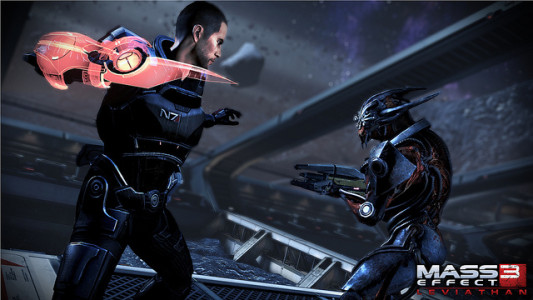 at stake. This is another massive issue with Destiny, there are virtually no stakes. Of course you are told there are stakes, in advertisements and in-game chatter, but where do we see that actually being the case? In Mass Effect 3, you see Earth ravaged by Reapers, refugees displaced by war, men dying on the field of battle. In destiny, you do see wreckage, but it’s centuries old. The only other spaces you see are the tower which seems to be full of a privileged few, who don’t seem to be too affected by the world crumbling around them.
at stake. This is another massive issue with Destiny, there are virtually no stakes. Of course you are told there are stakes, in advertisements and in-game chatter, but where do we see that actually being the case? In Mass Effect 3, you see Earth ravaged by Reapers, refugees displaced by war, men dying on the field of battle. In destiny, you do see wreckage, but it’s centuries old. The only other spaces you see are the tower which seems to be full of a privileged few, who don’t seem to be too affected by the world crumbling around them.
Content value is an ongoing argument within the Destiny community, as it is in many other fanbases. With two DLC expansions already shipped for $20 a pop, and a “massive” DLC expansion slated for September at the tune of $40, Destiny seems to be a cash cow. Many will argue that for the time spent, this is a reasonable value. I have played Destiny for over 660 hours myself, completing all the end game content 3 times over with each class. And this is a valid point worth mentioning, how many other hobbies can you engage in for 660 hours for just $100?
But during my travels in the world of Mass Effect, I took the chance to compare it to Destiny. Mass Effect 3 shipped on March 6th, 2012, with a considerable amount of DLC following thereafter but let us compare the two games even further. The first piece of significant DLC was released apologetically, as I am sure many remember how utterly disappointed fans were at the games extremely piss-poor ending. The extended cut attempted to remedy the issue and went over well with fans. After this initial downloadable installment, many weapon skins and packs were sold for about $2 a pop.
These weapons in no way broke the game, or fragmented the player base. Aside from small packs, 3 larger DLC packs were released. Leviathan, Omega, and Citadel were complex and well made pieces of downloadable content, each sold for $15. Here is a fitting comparison between the DLC of the “next gen” social shooter Destiny, and Mass Effect 3.
This is where I find the content argument gets interesting. Many fans will say, that your time investment makes Destiny worth it. But most of the time spent playing Destiny is spent replaying content, in the fashion of and MMO. As a gamer you must ask yourself, would you rather be playing fresh content for less time? Or spend more time playing the same things over and over? This answer will be different for everyone, which is a problem inherent in trying to please two different crowds.
The MMO fans playing Destiny may not have issue with grinding a raid for loot, but Shooter fans might. How do you feel?

